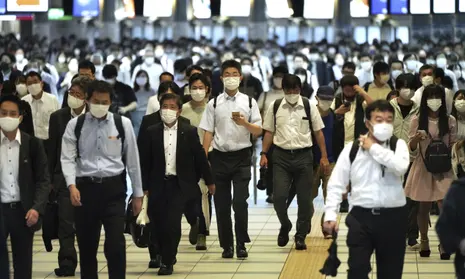Hikikomori, a phenomenon of social withdrawal, is spreading hastily in Japan, consistent with a central authority survey. The survey observed that nearly 1.five million humans of running age are residing as social recluses, with round 20% of instances attributed to the pressures of the Covid-19 pandemic.
The cupboard workplace surveyed 30,000 humans among the a while of 10 and sixty nine throughout Japan final November and observed that hikikomori accounted for 2% of humans elderly 15-62.
Large numbers of hikikomori stated that they’d began withdrawing from mainstream society because of dating troubles and after dropping or leaving their jobs, the cupboard workplace stated. Among humans withinside the 40-sixty four age range, 44.five% stated their behaviour have been precipitated with the aid of using leaving their jobs, observed with the aid of using 20.6% who noted the pandemic.
The upward thrust withinside the quantity of humans residing as recluses has caused a few nearby government to take action. Edogawa, a ward in Tokyo, will maintain metaverse socialising activities from June to provide hikikomori the possibility to satisfy humans thru their avatars. The ward is domestic to extra than 9,000 humans, inclusive of college students who’ve stopped attending classes, who describe themselves as hikikomori, consistent with a 2021 survey.
What is Hikikomori?
Hikikomori is a phenomenon of social withdrawal that has grow to be an increasing number of customary in Japan. The time period refers to people, normally younger adults, who withdraw from social interplay and isolate themselves of their houses for extended periods, on occasion for years. Hikikomori is related to emotions of anxiety, melancholy, and social phobia, and it’s far concept to be a reaction to the pressures of present day society, inclusive of excessive instructional expectations, excessive competition, and social isolation.
The effect of hikikomori is significant, each for the people affected and for society as a whole. For people who revel in hikikomori, the results may be devastating. Social isolation can cause similarly intellectual fitness problems, inclusive of melancholy and anxiety, and may make it hard for people to reintegrate into society. Hikikomori also can have long-time period consequences on people` social and monetary prospects, making it tougher for them to locate paintings or shape relationships.
At the equal time, hikikomori has broader implications for society. In Japan, hikikomori is visible as a symptom of wider social problems, inclusive of excessive ranges of pressure and competition, a loss of social help networks, and a feel of disconnection from wider society. The upward thrust in hikikomori has been related to the decline of conventional own circle of relatives systems and network ties, in addition to the pressures of a tremendously aggressive training system.
The effect of hikikomori is likewise felt on a much broader scale. The phenomenon has been related to monetary stagnation and the broader social and political demanding situations confronted with the aid of using Japan. Hikikomori can cause decreased productiveness and may make it tougher for people to make a contribution to the broader economy. It also can exacerbate demographic demanding situations, inclusive of an growing older populace and a declining beginning rate.

